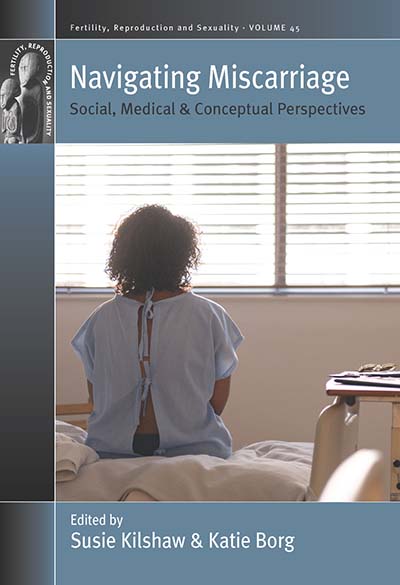“Twenty percent of pregnancies end in miscarriage, demonstrating that this is an important issue that impacts many people. The book makes an important contribution to the literature with informative chapters that will assist those who have experienced miscarriage and clinicians who deal with a broad spectrum of patients experiencing pregnancy loss and other infertility problems. The book also offers a pathbreaking guide for scholars researching the multifarious aspects of this social and medical problem. Recommended. All readers.” • Choice
“As a whole, Navigating Miscarriage offers conceptual depth that will contribute to important conversations in advanced anthropology classrooms. Some chapters will also be accessible to earlier students…The collection would also be well placed in training programs for health care professionals to encourage greater intercultural competency and empathy for patients with a wide range of experiences and expectations.” • Medical Anthropology Quarterly
“The book offers fresh perspectives and gives the reader much to consider. Overall, this sensitively written, accessible and diverse collection offers a breath of rewarding anthropological insight into miscarriage and will prove useful for practitioners, academics, and all of those interested in or affected by pregnancy loss.” • Mortality
“Navigating Miscarriage will enhance the curricula of courses in obstetrics, public health, sociology, anthropology, and history and could be of great interest to individuals navigating their own experiences with pregnancy loss…And it makes a significant contribution as an effort to expand scholarship on miscarriage beyond Euro-America, critically examine discourses and categories of miscarriage, and demonstrate a diversity of experiences of this common yet underacknowledged reproductive event.” • American Ethnologist
“This is an interesting collection of chapters developing anthropological perspectives around miscarriage and pregnancy loss from a wide variety of angles.” • Sara Randall, University College London
“The book’s major strength is the diverse approaches to pregnancy loss, across countries and healthcare systems, traced by the contributors — offering a timely contribution to the social study of reproduction.” • Ben Kasstan, University of Sussex
Miscarriage is a significant women's health issue. Research has consistently shown that one in four pregnancies end in miscarriage. This collected volume explores miscarriage in diverse historical and cultural settings with contributions from anthropologists, historians and medical professionals. Contributors use rich ethnographic and historical material to discuss how pregnancy loss is managed and negotiated in a range of societies. The book considers meanings attached to miscarriage and how religious, cultural, medical and legal forces impact the way miscarriage is experienced and perceived.
Susie Kilshaw is a Wellcome Trust Principal Research Fellow in the Department of Anthropology, University College London. Her publications include Pregnancy and Miscarriage in Qatar: Women, Reproduction and the State (2020, I.B. Tauris) and Impotent Warriors: Gulf War Syndrome, Vulnerability and Masculinity (2009, Berghahn).
Katie Borg has completed field work on traditional healers in the Namitembo district near Zomba in Malawi. She currently works as an asthma nurse specialist for Oxford University Hospitals NHS Foundation Trust and as clinical research nurse at the University of Oxford.
Area:
LC: RG648 .N38 2020
BL: DRT ELD.DS.492156
BISAC: MED082000 MEDICAL/Reproductive Medicine & Technology; SOC002010 SOCIAL SCIENCE/Anthropology/Cultural & Social


